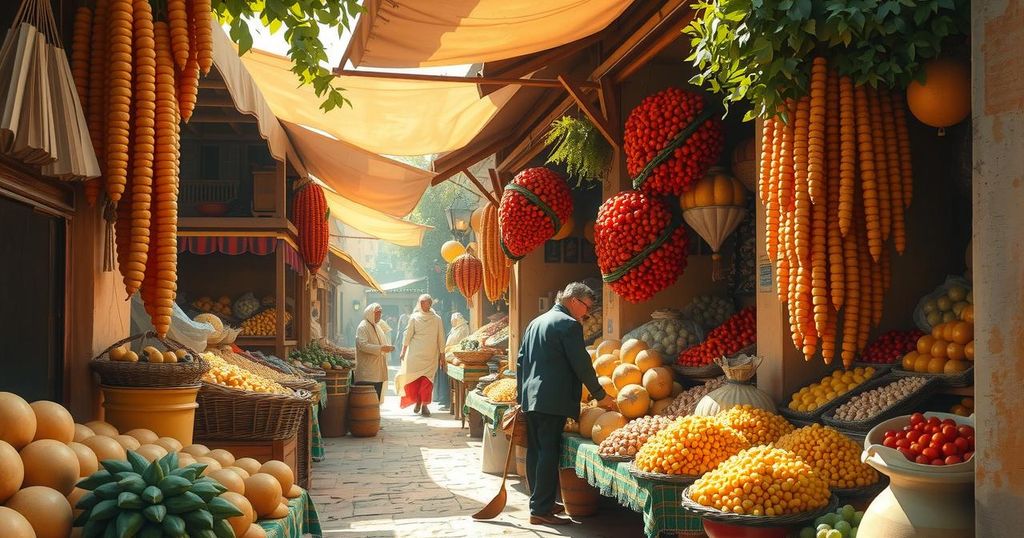Morocco Boosts Date Imports Ahead of Ramadan Amidst Drought Challenges
Morocco is set to enhance date imports for Ramadan due to drought affecting local production. Minister Ahmed Bouari highlights weak rainfall impacting agriculture. The majority of dates in markets are imported. Efforts are underway to improve the date sector, with the anticipated significant consumption of dates during the holy month.
Morocco is preparing to import an increased quantity of dates due to the approaching holy month of Ramadan. Recent reports indicate that the nation is striving to meet local demand for dates amidst challenges such as drought conditions affecting agricultural yields. Minister of Agriculture Ahmed Bouari has noted that this season’s rainfall is the weakest recorded in the last 30 years, leading to concerns about reduced agricultural output, including cereals and other harvested goods.
A report from FreshPlaza reveals that a significant portion of the dates available in Moroccan markets, particularly in Casablanca, is imported. The demand among Moroccan consumers for dates is notably high prior to and throughout Ramadan. One importer remarked on the situation, saying, “This year, we’re seeing even fewer Moroccan dates because of the drought in the main growing areas.” Furthermore, Morocco not only imports dates from Tunisia but also relies on supplies from Egypt and Saudi Arabia.
In October 2024, Morocco signed six agreements aimed at enhancing the date palm sector. These agreements focus on improving agricultural practices and fostering innovation in the Drâa-Tafilalet region, which is a key area for date production. Initial reports from the ministry indicate that Morocco’s date production was estimated at 115,000 tons for the 2023-2024 season.
During Ramadan, dates are traditionally consumed, often in combination with milk or water, as Muslims break their fast. This period instills a lively atmosphere throughout the country as Muslims observe a fast lasting 29 to 30 days, contingent on the sighting of the crescent moon. Ramadan is anticipated to commence on March 1, with final confirmation from Morocco’s Islamic Affairs Ministry once the moon is sighted.
To summarize, Morocco is actively preparing for increased date imports as Ramadan approaches, primarily due to weaker local production caused by drought conditions. The nation relies on imports from countries like Egypt and Tunisia to satisfy the high local demand. Ongoing efforts to bolster the date sector in Morocco, including new agreements aimed at enhancing agricultural practices, indicate a commitment to resilience in future production.
Original Source: www.moroccoworldnews.com




Post Comment